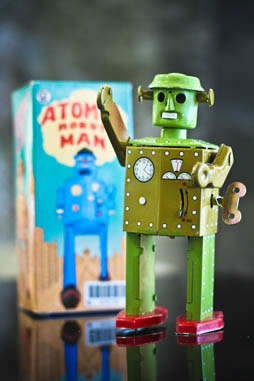The beast-fable has, of course, a connection with fairy-stories. Beasts and birds and other creatures often talk like men in real fairy-stories. In some part (often small) this marvel derives from one of the primal ‘desires’ that lie near the heart of Faerie: the desire of men to hold communion with other living things.
-J.R.R. Tolkien, On Fairy Stories
Girard would say that every desire we have comes from imitating the desire of someone else. From whence do we desire to “hold communion with other living things”? Well, we get this from God, our creator of course. This is why he made man in the first place. It’s also why man has “free will”, however you want to define it. Man is a very special creation of God, intended for communion with him. Apparently communing with stars, trees, and even angels was OK, but God wanted someone even more like himself.
In the same way, we want to commune with our own creations. I think this is behind some of our fascination with robots. Tolkien probably would have hated robots. If a robot is simply a machine of man’s ambition, just a twisted extension of man exerting control, like Saruman and his eugenics and Orcs and bombs, then yes, they should be hated. But, on the other hand, robots need not be just extensions of man’s arm. I see in some of our creative endeavors with robotics and AI the image of God, wanting to commune with his creation. We, as sub-creators, little creators, do not have the power to instill the breath of life into our works, but that has never stopped us from trying.

The artist has often described his work with the canvas and paint in very intimate language. If you’ve ever spoken to a very enthusiastic gardener, you’ve probably heard some of the same. Lots of science fiction literature has explored this, with varying degrees of success. Asimov’s “I, Robot” and Dick’s “Do Androids Dream of Electric Sheep” are a couple of classics. Even if you don’t like science fiction (and I, admittedly don’t care for much “hard” sci-fi), it’s difficult to deny that the interaction between the android Data and his creator on Star Trek made for some really wonderful drama and storytelling. It was good not because of clever effects or good acting, but because it effectively touched some of these deep desires of mankind.
It’s doubtful whether, had he lived long enough to see the information age, Tolkien would have ever warmed up to these ideas. He loved all things green and mechanical things left a bad taste in his mouth. Nevertheless, I think building a robot and inventing a new world or language are more alike than we have often realized. The desire is the same, only the mode has changed.
